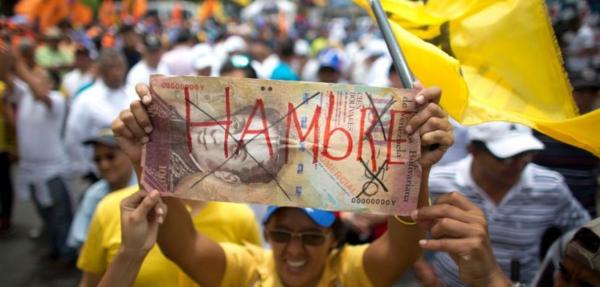 TORONTO – The tragedy unfolding in Venezuela is a result of eroding economic freedom in that country over the past 40 years, according to a new publication released today by the Fraser Institute, an independent, non-partisan Canadian public policy think-tank.
TORONTO – The tragedy unfolding in Venezuela is a result of eroding economic freedom in that country over the past 40 years, according to a new publication released today by the Fraser Institute, an independent, non-partisan Canadian public policy think-tank.
“When governments reduce economic freedom, as they’ve done in Venezuela, first under crony capitalism and more recently under crony socialism, it has disastrous effects on the income and living standard of its people,” said Fred McMahon, the Fraser Institute’s Dr. Michael A. Walker Research Chair in Economic Freedom and editor of Changes in Economic Freedom in Venezuela, Ireland, and the United States. “Economic Freedom is much more than an abstract concept to the people of Venezuela. It’s one of the reasons their economy has collapsed and their country is in ruin.”
McMahon returned from Caracas last month after delivering an assessment of the country’s economic freedom at a conference of Venezuelan leaders. He witnessed first-hand the consequences of that country’s shift away from economic freedom over the last four decades.
In 1970, Venezuela had a per-capita GDP well above the world average and the highest ranking in South America of economic freedom, a measurement based on the size of a country’s government, its legal system and property rights, access to sound money, freedom to trade internationally, and regulations.
Venezuela now ranks dead last in the world and has done so for the past five years. The people of Venezuela are suffering runaway inflation, a lack of even basic medicines and food, riots and soaring crime.
Two other essays in today’s publication also highlight the consequences of declines and improvements in economic freedom among more developed nations: Ireland and the United States. The U.S. has also become less free economically under both Democrat and Republican administrations since 2000, and as a result GDP growth has slowed substantially from an inflation-adjusted average of 3.4 per cent between 1980 and 2000 to 1.8 per cent since then.
